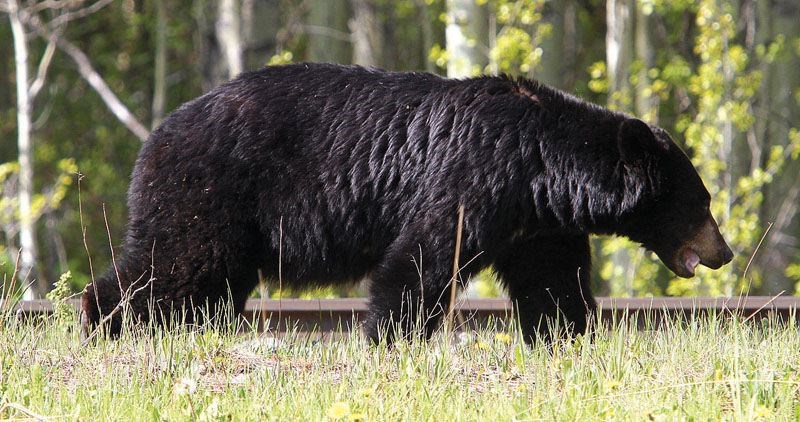It's been a year Northern Bear Awareness president Dave Bakker would sooner forget.
As of Oct. 28, conservation officers have had to destroy 41 bears and a further five were put down by others in and around Prince George since April, according to the Ministry of Environment.
That's about double the totals seen in each of the previous three years.
In part, the spike has been attributed to the long, hot dry spell over the summer, which put a dent in natural food sources.
"Saskatoon berries didn't last longer than two weeks and it really did a number on a lot of the other crops, like your low-bush blueberries and your huckleberries," Bakker said. "There wasn't a huckleberry to be found in this area from what I hear."
The massive forest fires that accompanied the hot weather also had an impact.
"Even though the forest fires were hundreds of miles away, it's like a domino effect," Bakker said. "When bears get pushed out of an area, if they're dominant over other bears, they push those bears on and so on and so forth."
What's more, the bears will follow the food sources along the banks of the Nechako and Fraser rivers, "and guess where they end up?"
Temperatures were about the same as during summer 2010, which was the worst year on record with 86 destroyed, Bakker said.
Although this year's total is an improvement over four years ago, Bakker said more work needs to be done and is continuing to urge homeowners to take the steps need to keep the attractants that draw bears into neighbourhoods to a minimum.
Those steps include:
- Keep garbage indoors or in a bear-resistant closed shed and wait until the morning of collection day to put out garbage containers.
- Make sure ripened fruit is picked from the branches of fruit trees and that all fallen fruit is regularly picked up off the ground.
- Take bird feeders down for the summer months and put them back up only once the snow has fallen.
- Turn composts over once a week and refrain from putting meat, dairy products, fish, unrinsed eggshells and oils into the compost.
- Keep barbecues clean and, if possible, store inside a bear-resistant closed shed. If not possible, purchase a cover or tarp to reduce odors.
- Feed pets inside or bring the food dishes in immediately if pets do not finish it. Bags of pet food should be stored inside or in a bear-resistant closed shed.
Bakker pointed to Sintich Trailer Park on Highway 97 South as a model of how to do it right. The owners brought in bear-proof containers and told residents to take their bird feeders down. From an average of six bears destroyed each year, none had to be put down last year.
Conservation officer Rory Smith concurred with Bakker in terms of the amount of trouble and the causes.
"This is one of the worst year's we've had in a long time," Smith said. "It's been extremely busy. We're really looking forward to the bears denning up."
Bears who can't find anything worth eating will soon move on.
"They can't waste a lot of energy hanging around where they won't be rewarded," Smith said.
All the bears that were destroyed this year were black bears.

.png;w=120;h=80;mode=crop)

